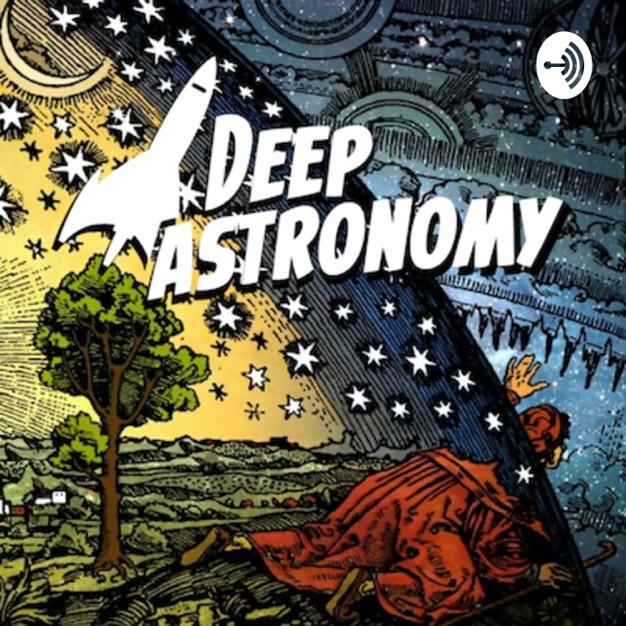
Deep Astronomy
Deep Astronomy
Welcome to Deep Astronomy, a podcast dedicated to helping us understand our place in the universe. Support this podcast: https://anchor.fm/deepastronomy/support
- 21 minutes 22 secondsCountdown to JWST #1: Finally Ready to Launch?
Here's the first installment of Countdown to JWST, a podcast that will track the mission up to launch (hopefully) later this year. Let's light this candle!
15 February 2021, 5:11 pm - 54 minutes 36 secondsWas There A First Cause?
Was there a first cause? Can there be a event that started everything? What would such an event look like? In this episode Tony and Charlotte discuss the scientific and philosophical understanding of the beginning of the universe and what an effect that does NOT have a cause must look like.
5 November 2019, 3:16 am - 38 minutes 39 secondsWhen An Atheist Met A Catholic Theologian
This episode kicks off what I hope will be a weekly posting for the DA Show. My wife Charlotte is a Catholic theologian and philosopher who has taught me much outside of my scientific realm. I have heartily enjoyed our conversations over the years and now I hope to share some of them with you.
29 October 2019, 5:46 pm - 56 minutes 16 secondsA Cautionary Science Tale: BICEP2 and the Perils of the Nobel Prize
Remember all the commotion about the BICEP2 mission back in 2014? Cosmologist had announced the observation of polarized "B-mode" waves that, if connected to the universal cosmic microwave background, would lend credence and observational support to the Inflationary Theory of Cosmology, this period just after the Big Bang when astronomers think the universe expanded exponentially and faster than light.
The story made the front page of the New York Times and we were hearing about it everywhere. While I doubt that very many people understood what was being said, clearly something big was happening and so everyone paid attention. Dr. Brian Keating from USCD was a member of the BICEP2 team and talks about that time with me along with other really interesting goings-on in the world of science, including whether having something like the Nobel Prize is hurting science.
Brian Keating's Book: "Losing the Nobel Prize: A Story of Cosmology, Ambition and the Peril of Science's Highest Honor" is available on the Deep Astronomy Amazon Page here:
https://amzn.to/2JHl7W4
11 October 2019, 7:14 pm - 1 hour 2 minutesUsing Nuclear Power for Deep Space Exploration
It turns out that NASA and others have been thinking about the inefficiencies of using chemical rockets to go to the Moon, Mars and the Outer Planets. One very attractive solution is Nuclear Thermal Propulsion, a technology that was begun in the 1960's and considered as a viable method of propelling Apollo astronauts to the Moon, but was abandoned in favor of chemical rockets. Fast forward to the twenty first century and we are back thinking about using this promising propulsion to get humans and space probes to the outer solar system quickly. This podcast is the audio version of a Future in Space Hangout sponsored by the American Astronautical Society.
3 October 2019, 5:27 pm - 42 minutes 15 secondsThe Apophis Asteroid: Should You Be Worried?
Let's talk about the potentially hazardous asteroid known as Apophis. In April, 2029 this 320 meter rock will get so close that it will pass under the orbit of geosynchronous satellites! Astronomers held a conference in late April of 2019 to discuss the science that can be done as it passes so close to the Earth.
3 June 2019, 8:05 pm - 36 minutes 26 secondsWas the Event Horizon Telescope Black Hole Image a Waste of Time?
In this podcast: an essay on whether the effort that went into making the black hole image in the distant galaxy M87 by the Event Horizon Telescope was worth it; an interview with star mapper Wil Tirion and more!
20 May 2019, 4:36 pm - 1 hour 47 secondsThe Large Millimeter Telescope
This podcast features science and technology from the Large Millimeter Telescope. Our guests Nat DeNigris and David Sanchez will be on hand to discuss this amazing facility being operated in Mexico.
The Large Millimeter Telescope is the world's largest single-aperture telescope in its frequency range, built for observing radio waves in the wave lengths from approximately 0.85 to 4 mm. It has an active surface with a diameter of 50 metres and 1,960 square metres of collecting area.
17 May 2019, 9:09 pm - 1 hour 1 minuteJust How Fast is the Universe Expanding EXACTLY? ...and how do we know this?
We've known since Edwin Hubble's time that the universe has been expanding. What we've only recently learned (like, in the past 10 years or so) is that the universe is accelerating as it expands. Measuring this expansion rate has been problematic and while there are at least two different ways to make the measurement, they don't always agree.
This episode features Ed Macauley from the University of Portsmouth UK, and a member of the Dark Energy Survey collaboration. He and his team have been using a calibrated version of the 'standard candle' method of determining the rate of universal expansion, also known as the Hubble Constant or H0 to get a better answer that agrees with other measurement techniques.
You can read Ed's paper on Arxiv.org here: https://arxiv.org/pdf/1811.02376.pdf
1 April 2019, 6:13 pm - 35 minutes 13 secondsLife in the Universe? We May Be It!
I'm not convinced that life is everywhere in the cosmos. It is entirely possible, based on what we know today, that we are the only life there is. Anywhere. This episode is a brief discussion of that idea.
28 March 2019, 9:06 pm - 1 hour 11 minutesWomen in Science w/ Carol Christian
Welcome to the first in a series of monthly discussions about topics in astronomy with Carol Christian, a colleague and friend of mine that has cohosted Astro Coffee Hangouts with me for years.
This month we talk about what it's like for women in science. Why aren't more qualified women in science? What are the obstacles?
21 March 2019, 5:00 pm - More Episodes? Get the App
Your feedback is valuable to us. Should you encounter any bugs, glitches, lack of functionality or other problems, please email us on [email protected] or join Moon.FM Telegram Group where you can talk directly to the dev team who are happy to answer any queries.
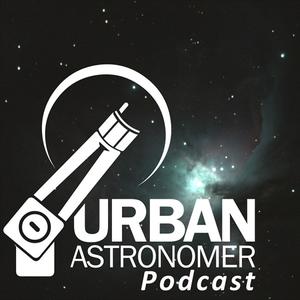 The Urban Astronomer Podcast
The Urban Astronomer Podcast
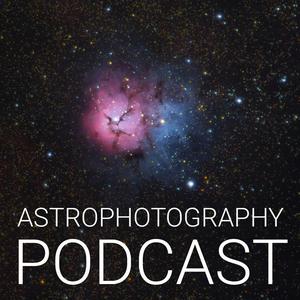 The Astrophotography Podcast
The Astrophotography Podcast
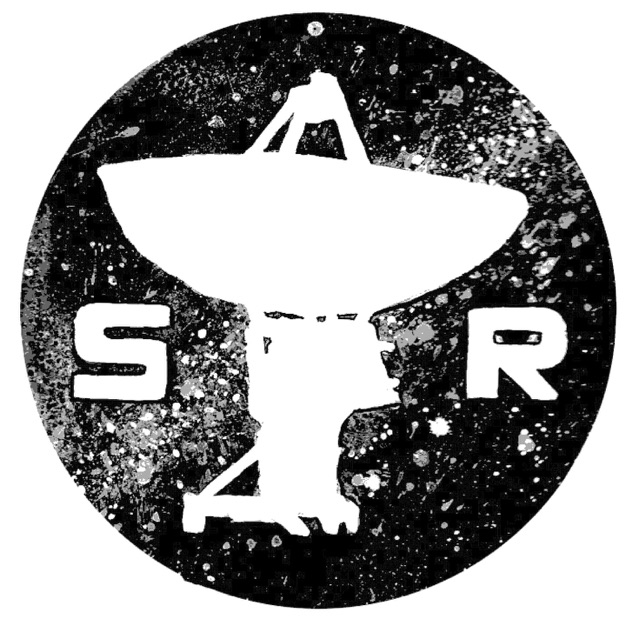 Space Radio
Space Radio
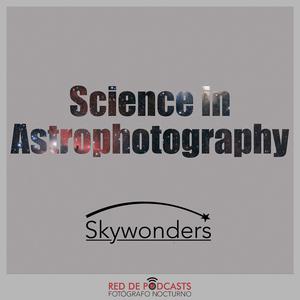 Science in Astrophotography
Science in Astrophotography
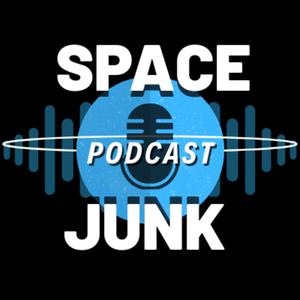 Space Junk
Space Junk
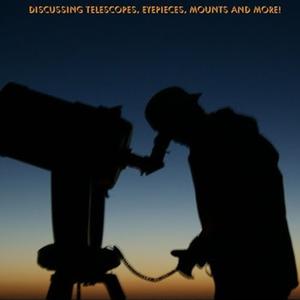 At The Eyepiece
At The Eyepiece